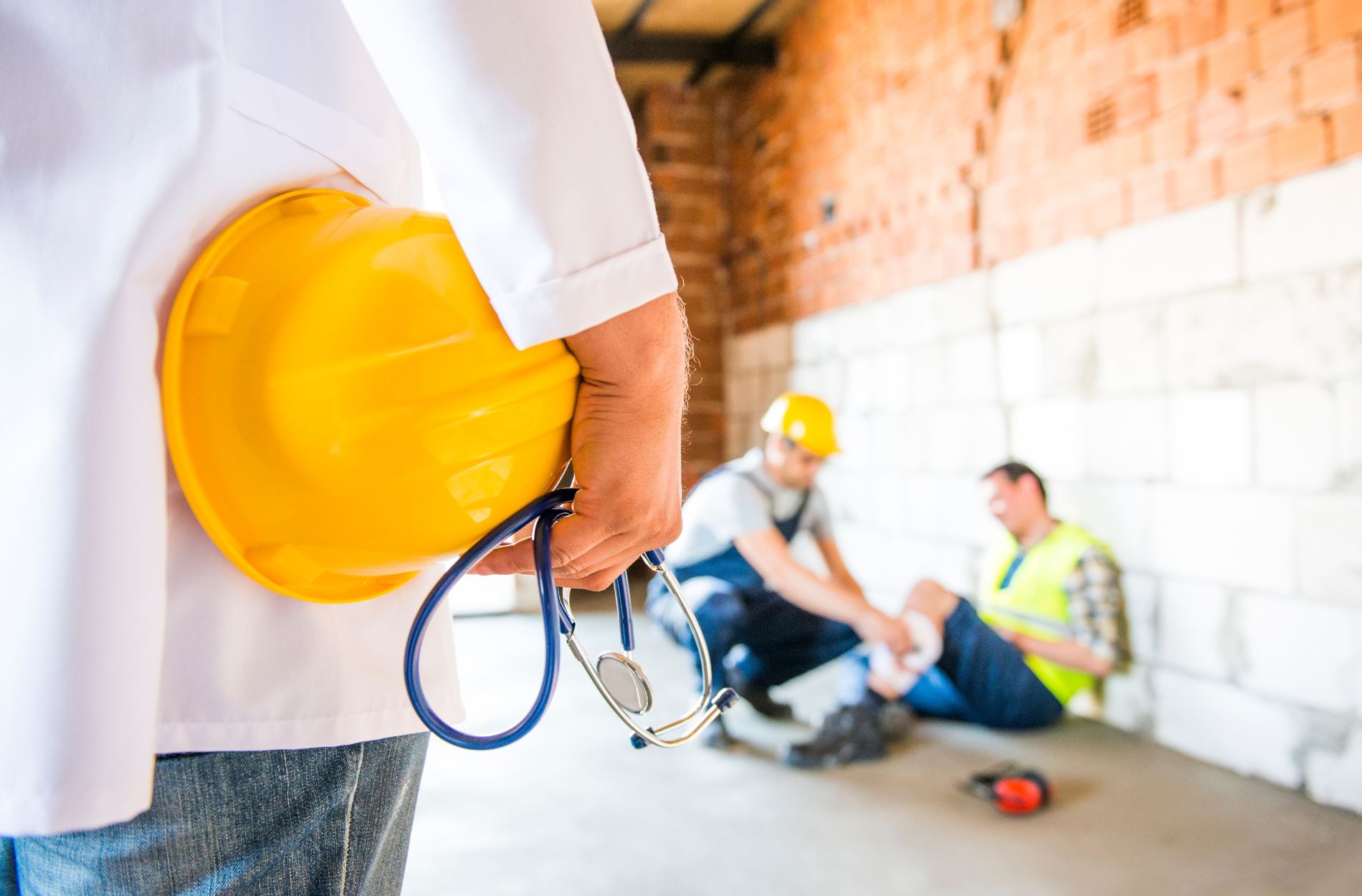Health and safety are crucial for any workplace. Knowing who to contact for advice can make a big difference in maintaining a safe environment. Whether you’re an employer or an employee, having the right information is vital to prevent accidents and ensure compliance with regulations.
This article will guide you through the main sources of health and safety advice. By understanding who to contact, you can take the necessary steps to keep your workplace safe and compliant with all relevant standards.
Official Health and Safety Bodies
For accurate and reliable health and safety advice, official bodies are a top choice. These organisations set the standards and guidelines that ensure workplaces adhere to the law.
1. Health and Safety Executive (HSE): The HSE is the main body in the UK responsible for enforcing health and safety regulations. They offer a wealth of resources, from risk assessment guides to industry-specific advice. Their website is a good starting point for any health and safety queries.
2. Local Authorities: Local councils play an important role in enforcing health and safety laws, especially in smaller businesses like shops, offices, and cafes. They can conduct inspections and provide guidance tailored to local needs.
3. Trade Unions: Trade unions often have health and safety officers who can advise workers and employers. They ensure that standards are met and provide support in case of workplace incidents.
4. Public Health England (PHE): PHE provides advice on health risks in the workplace, such as handling dangerous substances and managing infectious disease outbreaks. They offer useful resources and guidelines for employers.
Private Health and Safety Consultants
When you need specialised and expert health and safety advice, private consultants are a valuable resource. They offer personalised services tailored to your workplace’s specific needs.
1. Bespoke Risk Assessments: Private consultants can conduct detailed risk assessments for your business. They identify specific hazards and offer customised solutions to mitigate these risks. This personalised approach ensures that every aspect of your workplace is covered.
2. Training and Education: Many private consultants offer health and safety training for employees. This training ensures that everyone in the workplace understands the safety protocols and knows how to respond in emergencies. This can range from basic first aid to advanced safety management courses.
3. Policy Development: Consultants can help develop and implement health and safety policies. They ensure that your policies comply with legal standards and are effectively communicated to all employees.
4. Emergency Planning: Private consultants assist in creating comprehensive emergency plans. These plans include procedures for evacuations, fire safety, and handling hazardous materials. An effective emergency plan is crucial for minimising risks and ensuring swift action when incidents occur.
5. Ongoing Support: Many consultants offer ongoing support, including regular check-ins, updates to training programmes, and reviews of safety procedures. This helps businesses stay up-to-date with evolving safety regulations and best practices.
Industry-Specific Health and Safety Resources
Different industries face unique health and safety challenges. Accessing industry-specific resources can help you address these challenges effectively. Here are a few examples:
1. Construction: The construction industry has specific safety concerns such as working at heights and handling heavy machinery. Resources like the Construction Industry Training Board (CITB) offer guidelines and training programs tailored to these risks.
2. Healthcare: In healthcare, dealing with infectious diseases, hazardous chemicals, and patient handling are key concerns. Organisations like the National Health Service (NHS) provide valuable resources and training for managing these risks.
3. Manufacturing: Manufacturing involves the use of heavy equipment and hazardous materials. The Health and Safety Executive (HSE) provides guidelines on machine safety, chemical handling, and emergency procedures specific to manufacturing.
4. Hospitality: The hospitality sector faces risks related to food safety, fire hazards, and customer well-being. The UK Hospitality Association offers resources and training to ensure a safe environment for both employees and guests.
5. Agriculture: In agriculture, working with pesticides, machinery, and livestock poses unique risks. The Agriculture and Horticulture Development Board (AHDB) provides industry-specific advice and training to manage these hazards.
FAQs About Contacting Health and Safety Advisors
Understanding the process of contacting health and safety advisors can help you make informed decisions. Here are some frequently asked questions:
1. Do I Always Need to Hire a Health and Safety Consultant?
It’s not always necessary, but hiring a consultant can provide expert advice and ensure your compliance with laws. They can offer tailored solutions that suit your specific workplace needs.
2. How Can I Find Reputable Health and Safety Advisors?
Start by checking credentials and certifications. Look for advisors with recognised qualifications and experience in your industry. Recommendations from trusted sources can also be helpful.
3. Are There Costs Involved in Getting Health and Safety Advice?
Yes, there can be costs, especially with private consultants. However, many official bodies and industry-specific organisations offer free resources and advice.
4. How Often Should I Seek Health and Safety Advice?
Regular updates and checks are important. You should review safety procedures annually or when there are significant changes in your workplace, such as new equipment or processes.
5. What Should I Ask a Health and Safety Advisor?
Ask about their qualifications, experience, and the specific services they offer. It’s also helpful to discuss your particular needs and challenges to see if they can provide targeted advice.
Conclusion
Knowing who to contact for health and safety advice can greatly enhance the well-being of your workplace. From official health and safety bodies to private consultants and industry-specific resources, there are many options available. Each source offers unique benefits, ensuring that you find the right fit for your needs. By consulting the appropriate authorities and experts, you can create a safer work environment and comply with all relevant regulations.
For comprehensive health and safety consultancy services, turn to CR Training. Our professional team is ready to assist you in creating a safer workplace for everyone. Contact us today to learn how we can support your health and safety needs!




